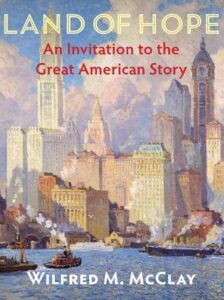Teaching America
The Jesuit School appreciates how successfully postmodernist mind-sets have rooted themselves in the curriculum of American classrooms, public and private. Howard Zinn’s success in the history classroom provides one example. The unquestioning ease with which his distortions of American “history” have become accepted as true is a triumph of the free market he of course disdains: have Matt Damon’s character recommend your book A People’s History of the United States to his shrink, Robin Williams, in a popular movie and soon you’re raking in the dough.
Congratulations on his personal financial triumph aside, the damage is done.
In the meantime, however, educators and parents who love genuine history–and want their charges to grow up understanding the depth and breadth of what happened and why throughout the history of this country–will find here a different approach.
History is naturally chaotic. As human beings are the subject, it is naturally a story of vices and virtues. It is not a story that ought lead any student to hate a nation or a civilization, to believe only the worst and overlook the best, and it ought never “speak directly to our inner Holden Caulfield” (as Stanford University’s Sam Wineburg said of Zinn’s book).
Wilfred M. McClay
“Civic education, rightly understood, extends far beyond how a bill becomes a law. It should promote a vivid and enduring sense of our belonging to one of the greatest enterprises in human history: the astonishing, perilous, and immensely consequential story of our own country. Both things involve fostering that sense of felt connection to our past and of appreciation for the good things that we have inherited, along with a feeling of responsibility for the tasks of preserving them and improving upon them. Hence a civic education should be an initiation not only into a canon of ideas but into a community; and not just a community of the present but also a community of memory—a long human chain linking past, present, and future in shared recognition and, one hopes, in gratitude.
Ultimately, a patriotic education should be an education in love. The love in question, needless to say, is something different from romantic or familial love, something that cannot be imposed by teachers or schools or government edicts—least of all, in a free country. It must be embraced freely and be unsentimental enough to coexist with the elements of disappointment, criticism, dissent, opposition, and even shame that come with moral maturity and open eyes. But it is love, all the same—and without the deep foundation that it supplies, a republic will perish.”
Read Wilfred McClay’s entire essay here.
In writing Land of Hope, historian Wilfred McClay provides “American readers, young and old alike, an accurate, responsible, coherent, persuasive, and inspiring narrative account of their own country–an account that will inform and deepen their sense of the land they inhabit and equip them for the privileges and responsibilities of citizenship.”
The book’s title directs the reader to the fundamental nature of the nation’s distinctive character: the “ubiquity of hope, a sense that the way things are initially given to us cannot be the final word about them, that we can never settle for that.”
McClay reminds us that “hope and opportunity are not synonymous with success. Being a land of hope will also sometimes mean being a land of dashed hopes, of disappointment. This is unavoidable.”
Any nation that “professes high ideals makes itself vulnerable to searing criticism when it falls short of them–sometimes far short indeed, as America often has. “None of this ought surprise us as “all human beings are flawed, as are all human enterprises.”
We must remember that the history of this country, and of the Western world, “includes the activity of searching self-criticism” fundamental to its makeup. It is wise, then, to make that criticism “with constructive intentions and a certain generosity that flows from the mature awareness that none of us is perfect.”
The natural “tendency to condescend toward the past” is easy to do when one remains ignorant of the “full context of the past” or never attempts to “grasp the nature of its challenges as they presented themselves at the time.”
Land of Hope, in the hands of a teacher committed to advancing knowledge rather than assertions, is a potential antidote.
